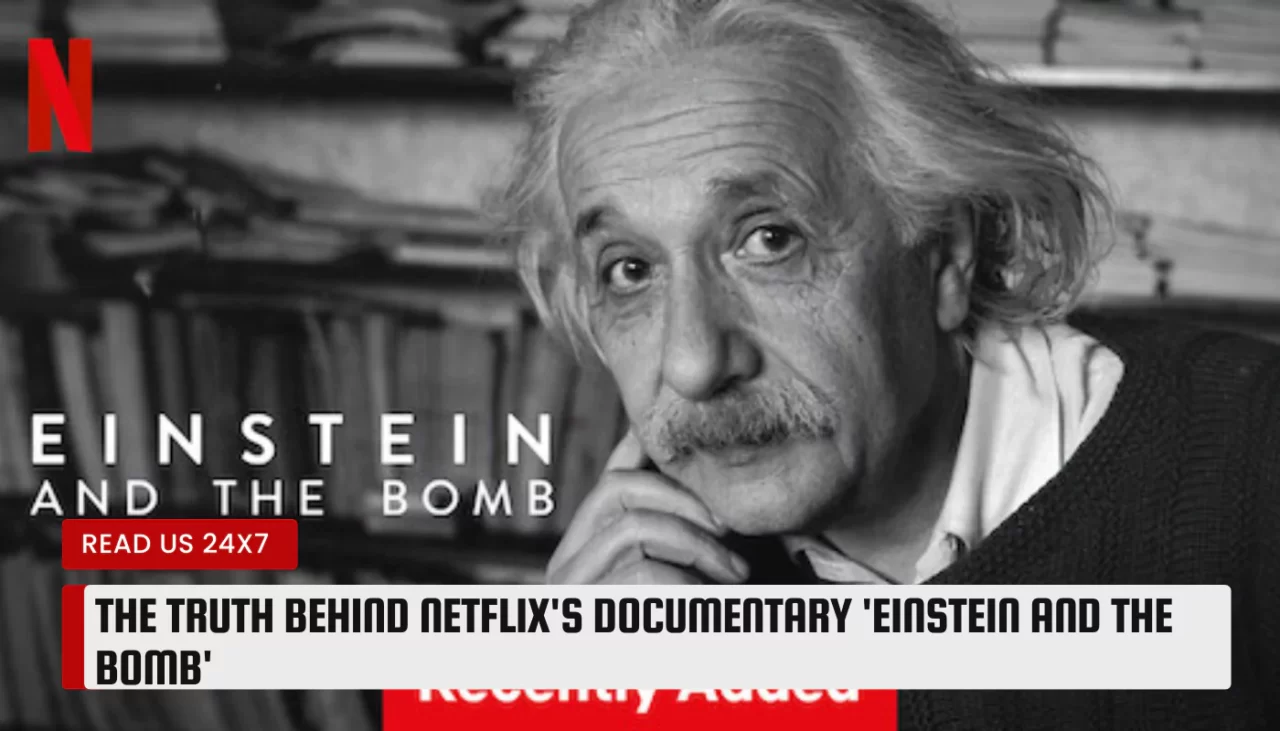Netflix has recently released a new docudrama titled ‘Einstein and the Bomb’, which explores the life and legacy of one of the most influential scientists of the 20th century, Albert Einstein. The documentary claims to reveal the true story of how Einstein contributed to the development of the atomic bomb, and how he felt about its use in World War II. But how accurate is this docudrama, and what can we learn from it? In this article, we will give you a brief overview of the background, the content, and our thoughts on ‘Einstein and the Bomb’.
The Background of ‘Einstein and the Bomb’
The docudrama was produced by Netflix in collaboration with the Einstein Archives at the Hebrew University of Jerusalem, which holds the largest collection of Einstein’s personal papers and correspondence. The producers wanted to create a compelling and educational documentary that would showcase Einstein’s scientific achievements, as well as his human side and his moral dilemmas.
The title of the docudrama is a reference to Einstein’s famous letter to President Franklin D. Roosevelt in 1939, in which he warned him of the possibility of creating a powerful new weapon using nuclear fission. This letter is widely considered to be the catalyst for the Manhattan Project, the secret US program that developed the first atomic bombs.
The True Story of Einstein and the Bomb
The docudrama follows Einstein’s life from his early years in Germany, where he developed his groundbreaking theories of relativity, to his later years in the US, where he became a vocal advocate for peace and human rights. Along the way, it highlights his role in the Manhattan Project, his relationship with Adolf Hitler, and the impact of his theories on the atomic bomb.
Einstein’s role in the Manhattan Project was indirect and limited. He did not work on the project himself, nor did he have any access to its details. He only wrote the letter to Roosevelt at the request of his fellow physicists, who were concerned about the Nazi regime’s potential interest in nuclear weapons. He later regretted his involvement, and called his letter “the greatest mistake of my life”.
Einstein’s relationship with Hitler was complex and antagonistic. Einstein was a pacifist and a Jew, and he opposed the Nazi ideology and policies. He left Germany in 1933, after Hitler came to power, and renounced his German citizenship. He became a target of Hitler’s propaganda, and was accused of being a traitor and a spy. He also received death threats from Nazi sympathizers, and had a bounty on his head.
The impact of Einstein’s theories on the atomic bomb was profound and controversial. His theory of special relativity, which he published in 1905, introduced the famous equation E=mc2, which shows the equivalence of mass and energy. This equation implies that a small amount of mass can be converted into a huge amount of energy, which is the principle behind the atomic bomb. However, Einstein did not invent the bomb, nor did he foresee its destructive power. He was shocked and saddened by the bombings of Hiroshima and Nagasaki in 1945, and he campaigned for the abolition of nuclear weapons and the establishment of a world government.
What to Expect in the Docudrama
The docudrama uses a combination of archival footage and dramatizations to tell the story of Einstein and the bomb. It features interviews with historians, physicists, and biographers, who provide context and analysis. It also includes excerpts from Einstein’s personal writings, such as his letters, diaries, and essays, which reveal his thoughts and feelings.
The docudrama aims to present a balanced and nuanced portrait of Einstein, showing both his genius and his flaws. It does not shy away from the controversies and criticisms that surrounded him, such as his marital affairs, his neglect of his children, and his clashes with other scientists. It also acknowledges the limitations and uncertainties of his theories, and the ethical and social implications of his discoveries.
Our Thoughts on ‘Einstein and the Bomb’
We think that ‘Einstein and the Bomb’ is a well-made and informative docudrama that offers a fascinating insight into the life and work of Einstein. It is not a hagiography, nor a sensationalization, but a respectful and honest tribute to one of the greatest minds of history. It is also a relevant and timely documentary that raises important questions about the role of science and scientists in society, and the responsibility and accountability that come with knowledge and power.
We recommend ‘Einstein and the Bomb’ to anyone who is interested in learning more about Einstein, or about the history and science of the atomic bomb. It is suitable for viewers of all ages, as it explains the concepts and events in a clear and accessible way. It is also entertaining and engaging, as it mixes facts and drama, and captures the personality and charisma of Einstein.
If you enjoyed ‘Einstein and the Bomb’, you might also like to watch other historical docudramas on Netflix, such as ‘The Crown’, which depicts the reign of Queen Elizabeth II, ‘The Social Network’, which tells the story of the founding of Facebook, or ‘The Imitation Game’, which portrays the life of Alan Turing, the father of computer science and a key figure in cracking the Nazi code.
Conclusion
‘Einstein and the Bomb’ is a new docudrama on Netflix that explores the life and legacy of Albert Einstein, and his connection to the development of the atomic bomb. It is a compelling and educational documentary that reveals the true story of how Einstein contributed to the Manhattan Project, how he felt about its use in World War II, and how his theories impacted the world. It is also a captivating and thought-provoking docudrama that shows the human and moral side of Einstein, and the challenges and dilemmas that he faced as a scientist and a citizen. We hope that you will watch ‘Einstein and the Bomb’, and that you will enjoy it as much as we did.


